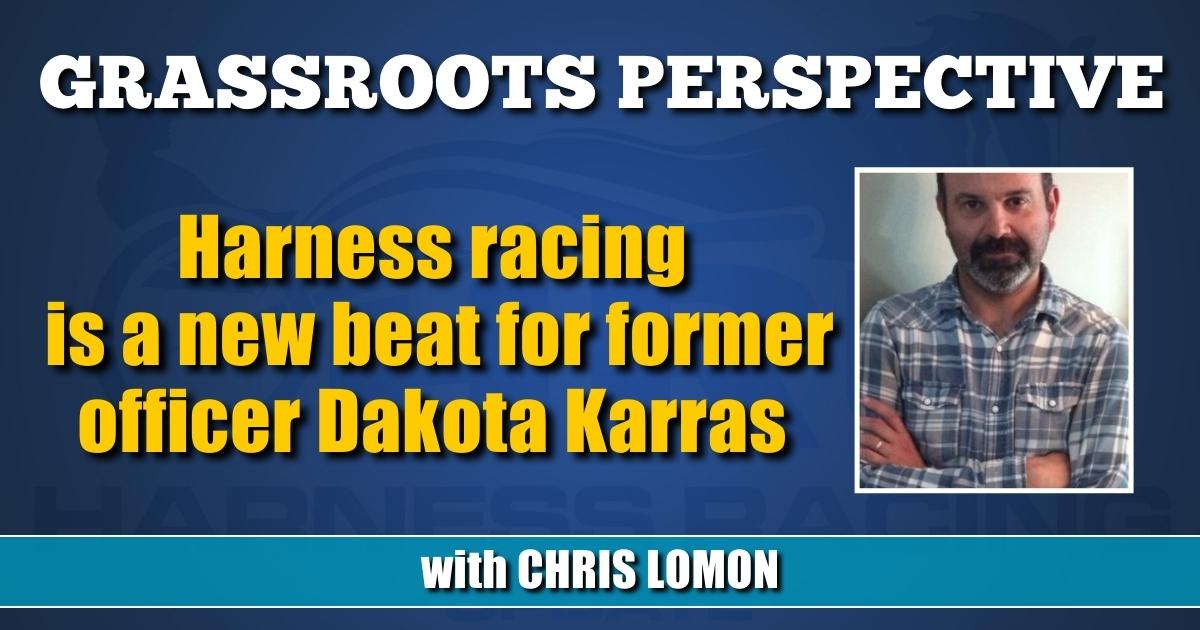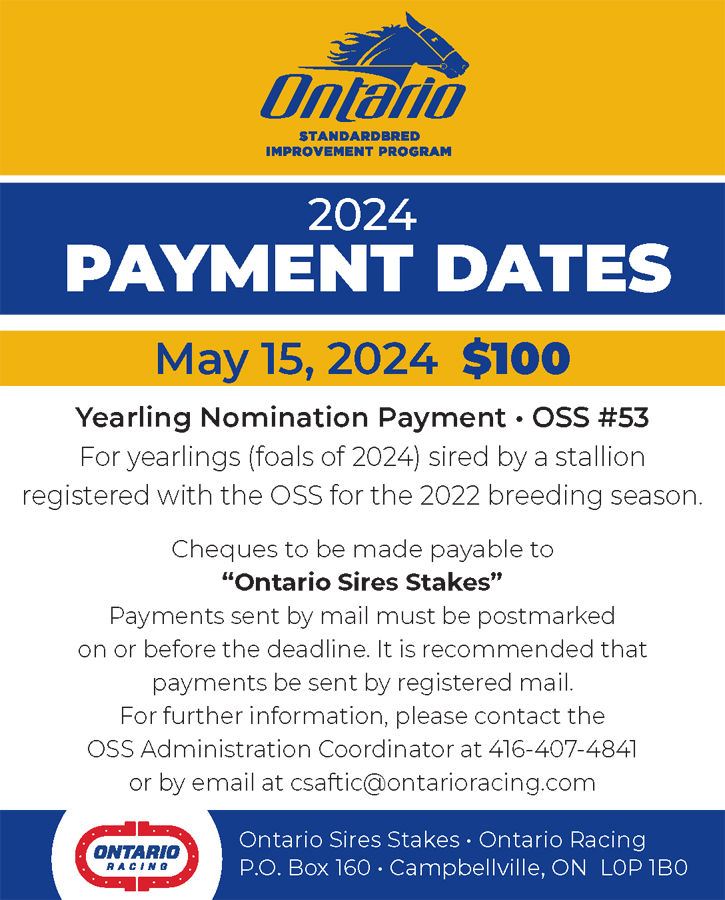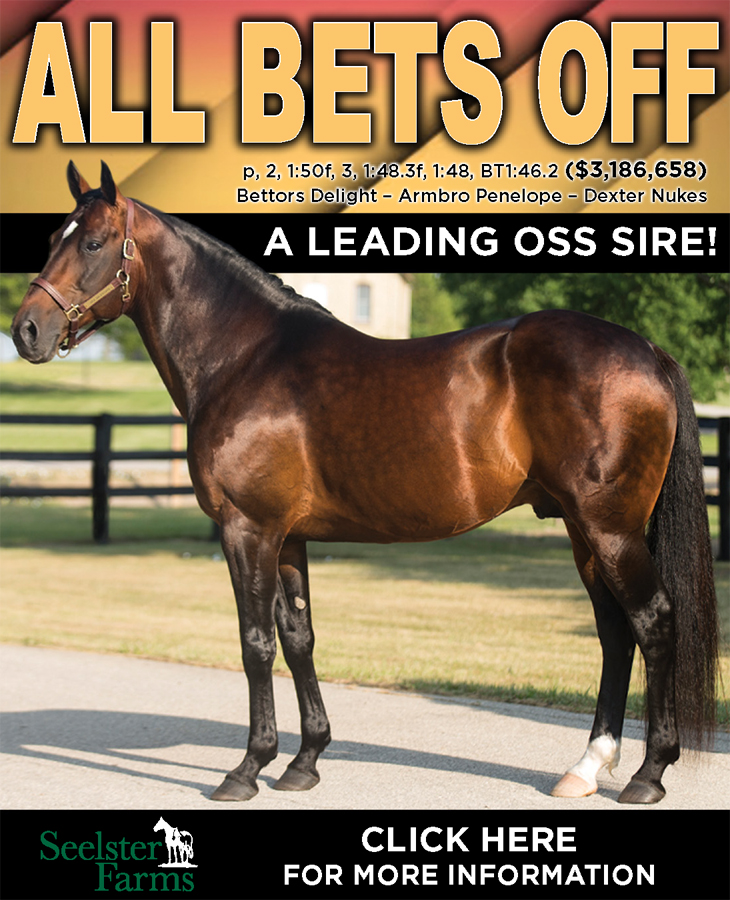

Harness racing is a new beat for former officer Dakota Karras
A job at Freehold Raceway completely changed her career trajectory.
by Chris Lomon
Where Dakota Karras finds herself is a place that she never thought she would be.
It stood to reason that the native of Jersey City, NJ was destined for a career in law enforcement.
“I was a special law enforcement officer, a Class 1 officer,” Karras said. “I went to Rider University and got my Bachelor’s degree in criminal justice. Once I graduated, I worked on the Boardwalk in New Jersey. But it wasn’t my cup of tea.”
Horses, however, were very much her thing.
Scrolling a job website one day, Karras scanned the listings for a law enforcement role associated with horses.
“I was on a one-year contract with my law enforcement job, and I didn’t renew it,” she said. “I wound up finding a job through Indeed, to work at Freehold Raceway as a security guard. I thought it would be in the grandstand, just a typical security job you would do at any establishment.”
The role was quite the opposite of what she had anticipated, something she discovered mere minutes after she walked onto the grounds of the half-mile racing oval in her home state.
“When I went to my interview, I didn’t realize I was going to be hands-on with the horses in the backstretch,” she said.
Whether it was fate, happenstance, kismet, or perhaps a combination of all three, Karras’ first day on the job would change her life.
“I started about three months before COVID hit and worked the paddock for three-and-a-half years,” Karras said. “That was my introduction to the standardbred world. It was unbelievable. I had worked in barns since I was 12. I was a little barn rat. Anything I could do to get saddle time, I would. I couldn’t afford lessons, so I bartered work for lessons. I worked with all kinds of different horses throughout my life, but I had never heard of standardbreds before that job. I had never been to The Meadowlands, Chester or Pocono, but that’s all changed.”
More so than she could have ever envisioned.
Curiosity working in her new surroundings soon gave way to embracing the idea of finding the right career fit working with standardbreds.
Not even a worldwide pandemic could derail her affinity for a newfound passion.
“I started learning about the horses and the sport, but then COVID hit,” Karras said. “I wound up having an opportunity to learn to groom during that period. Over that year, while the tracks were shut down, I learned everything about standardbreds and the business. I learned how to harness, how to jog, and so much about the industry. I was able to have that time to learn a new discipline that I didn’t know existed. I’ve ridden Western, I’ve ridden English, and done Western and English shows, but jogging a horse? I never thought that was something I would do. When the world finally reopened, I realized this is what I want to do, that this is something I love. I fell in love with the breed completely — how versatile, athletic, and open-minded they are. There is just something about them.”
Karras’ time spent with the horses, and lessons learned from horsepeople she worked for and spoke with, eventually led to an idea.
“I worked for a couple of trainers over the next year-and-a-half, post-COVID, and then I had a chance to break a 2-and-a-half-year-old filly under saddle,” she said. “That was the first standardbred I broke, and it was an, ’Aha!’ moment. I realized that this is what I had been missing. Her name is Shangri-La. She is my biggest mentor. It was so rewarding to watch her grow. She just turned 6 in May… You can teach these horses absolutely anything. When I talk about them, I don’t know what to say because there are so many things you could say about these guys. Her and the other horses brought me to where I am now.”
And where that happens to be is heading an organization that plays an integral role for the racing industry.
Karras is the driving force behind Blue Line Equine, LLC, established in 2021, that assists in rehoming and training retired standardbreds.
“My retraining and rehoming took off after working with Shangri-La,” Karras said. “She’s a pacer, so that was a totally new world in teaching a pacer to trot. It went from there. I ended up getting a little Credit Winner mare as well. I would show at nationals. And then word spread at Freehold about what I was doing, and I would get calls every now and again from people telling me they have a horse that could use a good home and if I could help them out. I’m a one-man band, so I do my best to help everyone I can. I’ve had quite a few very successful adoptions. All of this was unexpected, but it’s very fulfilling.”
Whether the horses she takes in are stakes winners, lower-level claimers, or even the ones who don’t make it to the races, is of no concern to Karras.
All are equal in her eyes.
“Shangri-La, she never hit the track,” she said. “How much money they make is of no matter to me. The Urbanskis have helped me out tremendously. They send me their retired horses. I love their horses. I have Andwin Hanover in my paddock. I love him. He reached six-figures in earnings, but that isn’t what makes a horse special. They are worth their weight in gold no matter how much money you see beside their names.”
A son of Yankee Cruiser who earned just shy of $275,000 over his 316-race career, Andwin Hanover is one of many success stories for Karras.
In the instance of the now 13-year-old gelding, the perfect home happened to be with Karras, who also teaches riding lessons and holds the reins of barn and property manager at the old Millstream Farm, now known as Al Malik Farm, in Allentown.
“I guess you could call it an adoption fail because I couldn’t let him go,” Karras said. “He has been such a pivotal figure in my riding lessons program. His rider is an 11-year-old girl. She asked me if I was going to keep him, and she gave me this face that told me I had to keep him now. She taught him everything he knows. She learned how to ground drive [a technique of controlling the horse from the rear with long lines attached to the bridle], which is amazing. I had a conversation with my boss at the farm and he wants to use standardbreds for lessons and trail riding that we have here.”
There are times, far more often than not, when Karras recollects her path from patrolling the Boardwalk to discovering an unexpected standardbred career.
And when she does take time to look back, a contented smile always follows.
“If you would have asked me years ago if this is where I would be, I would have giggled,” she said. “Both of my parents are in law enforcement. My father is a retired captain, my mom has less than a year left on the job. My uncle is a sheriff, my aunt is a judge, so that’s why I went the criminal justice route. But my heart was always set on horses. And here I am.”
More opportunity, Karras noted, for new adventures.
“I love it,” she said. “I never anticipated getting so involved with standardbreds, but I’m glad I did. It’s rewarding to match a horse with their perfect person. It’s all about partnership and discovering that energy when you find your heart horse, that perfect match.”
Something that Dakota Karras knows all about.















